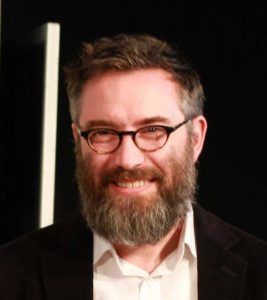The Lollard Society is an international organization of scholars, teachers, and students of the late-medieval Wycliffite reformist movement and its counterpart in Hussite Bohemia, along with a range of related texts, authors, and cultural currents from the fourteenth through sixteenth centuries. We provide the bibliography on this webpage as an intellectual resource and work to update it regularly. The Lollard Society is also active outside of this webpage. We sponsor sessions at major international conferences on Medieval Studies at Kalamazoo and Leeds and organize our own academic conferences and colloquia. We provide a forum to encourage conferences and publications that promote a greater understanding of lollardy and the cultures in which it developed and affected. One of our primary purposes is to support the work of graduate students, post-doctoral fellows, and early-career professors in the field.
Director
Michael Van Dussen, Dept. of English, McGill University

Executive Council
Mishtooni Bose, Faculty of English, Christ Church, Oxford
Pavlína Cermanová, Centrum Medievistických Studií, Filosofický ústav, Akademie věd České republiky, Prague
Kantik Ghosh, Faculty of English, Trinity College, Oxford
Stephen Lahey, Dept. of Religion and Classics, University of Nebraska-Lincoln
David Lavinsky, Dept. of English Literature, Yeshiva University
Petra Mutlová, Ústav klasických studií, Masaryk University, Brno
Patrick Outhwaite, (webmaster), Dept. of English Language and Culture, University of Groningen
Fiona Somerset, Dept. of English, University of Connecticut
Pavel Soukup, Centrum Medievistických Studií, Filosofický ústav, Akademie věd České republiky, Prague
Emily Steiner, Dept. of English, University of Pennsylvania
The banner image displayed on this website is from a copy of the Wycliffite Floretum in Prague, Národní knihovna České republiky, MS V.B.2, fol. 11r. Used with the kind permission of the Národní knihovna.
This website is hosted by the University of Groningen and partly funded by a VENI grant awarded by the Nederlandse Organisatie voor Wetenschappelijk Onderzoek (NWO).